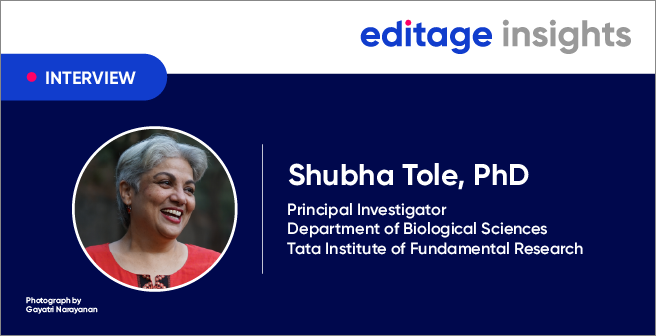PhD: Should I walk away or should I stay?

I have been thinking recently about my PhD journey because I am trying to write a paper about the challenges of writing a PhD thesis. I’ve been re-reading my research journal and old emails between my supervisor and myself in an effort to piece the journey together more clearly. It’s easier when you are finished with your PhD to look back and see things as not having been as difficult as they were. It may seem to readers of this blog that my own journey was a bright and shiny thing, especially given the ‘I am finished!’ posts I have been able to write in recent months. This is not completely so, and in writing this post I hope I can perhaps help those of you who are in a tough spot now and asking yourself, ‘Do I really want/need a PhD? Wouldn’t my life be easier if I just quit and tried again later when my life is less busy?’ – or some version of that.
This is what I asked myself at the end of 2010. I had a tough year in 2010, workwise and personally. I was in a new job that required a lot of my time, effort, and headspace. My kids were very young, 3 and 7, and needed a lot of me. I started my PhD in February of that year and had no idea what I was doing, and all the months I spent reading and thinking drained rather than energised me. I ended 2010 feeling less clever than I had ever felt, and more tired than I remembered feeling before. I had no clear direction for my PhD, I had not done enough to write anything coherent or sustained, and I felt lost and wrung out. I just didn’t want to do it. I resented the push from my university to get a PhD – the strong sense I had that I would not be taken seriously if I did not do so. I felt guilty taking family time to work on my PhD, and I resented missing out on trips to the beach or the park because I needed to be chained to my desk, reading and writing for a PhD I increasingly did not want to be doing. I was pretty miserable and I blamed the PhD. It was not a productive or happy place in which to be.
I started 2011 feeling quite desperate. I knew I could not go through another year like 2010, and I knew that in order to get my sanity and balance back, something had to give. The logical thing to exclude from my life was the PhD. I wanted to deregister, and perhaps try again when my kids were older, or when I could find a research question I really wanted to answer, or when I knew what I was doing. My supervisor urged me not to take such a drastic step (and I am really glad I listened to her now); she advised me rather to suspend my registration for a year and see how I felt after having had a break, both physically and mentally. So I did that. Suspending my registration produced mixed feelings, though. There was immense relief – like a huge pent-up breath being exhaled in a whoosh; but there was also self-doubt and self-criticism for quitting and for not staying the course. I felt like I had failed, and I don’t like to fail.
But suddenly I had all these hours in my week, and my diary and head were less full. I could think again, and go to the beach and the park and not feel guilty for not working on my PhD. I felt free, and that was a really lovely feeling after 2010’s struggles. This feeling lasted about 4 months. Then, around May, the PhD started to niggle me. I started to remember, with the distance I had been able to attain from it, why it was that I registered in the first place. It was not just to satisfy a demand from my profession to get the right qualification; it was not just for that external recognition. I did have questions I really wanted answers to. I wanted an academic career, and I wanted to learn how to do research well; I wanted to push myself intellectually and personally. I wanted the process, as well as the letters in front of my name. I wanted to see myself differently just as much as I wanted that recognition from others. Once I started remembering that I had my own intrinsic motivations for taking this on, the desire to start reading, and thinking and writing began to grow again.
I found a new question, I started reading, and made contact with my supervisor again. I had a new attitude towards the PhD itself. I was less resentful of all the time it took up, and tried rather to focus on what the process was offering me rather than what it was taking away or asking me to give up (I still got grumpy about missing out on the beach and the park, though). I think the shift for me was that I chose to go back to it, and I chose to take it all on again. I know, rationally, that I chose it the first time too, but I did so perhaps more for other people’s reasons than for my own. Realising that I could walk away and be fine was important, because ironically that is what made it possible for me to go back.
You could walk away, and you could be fine. You could quit now and try again later. There is no shame in realising that something – anything – you have taken on is too much or coming at the wrong time and needs to be let go of. But, if you are quitting because it all feels like too much and you cannot work out if it’s the PhD, life or something else, don’t quit yet. Step back, try and take a hiatus for a period of time, and then re-examine your reasons for doing your doctorate in the first place. Try to see if you can find again those intrinsic, selfish reasons for choosing to do this to yourself and your family/friends/people. See if you can rediscover that spark of curiosity. If you can, then take the leap. You won’t be sorry. You won’t necessarily have a bright and shiny journey – it is still a PhD after all – but you will have a better chance of getting to the end of this journey in one piece and on to what awaits you thereafter.
Dr. Sherran Clarence (@PhDgirlSA) is an Honorary Research Associate at Rhodes University; and Managing Editor of Critical Studies in Teaching and Learning, and Theoria: A Journal of Social and Political Theory. This story was published on June 24, 2014, on Dr. Clarence’s blog, ‘How to write a PhD in a hundred steps (or more)‘ (available here), and has been republished here with her permission.




